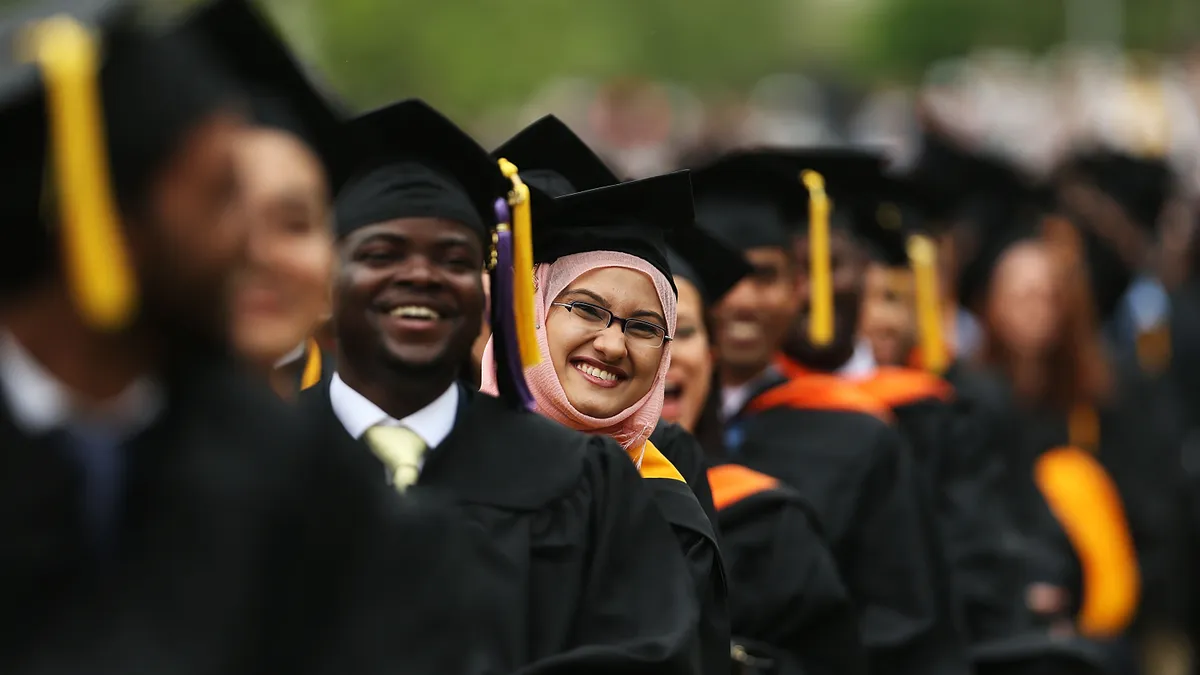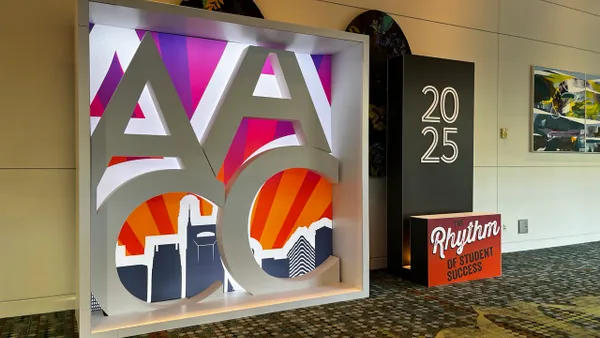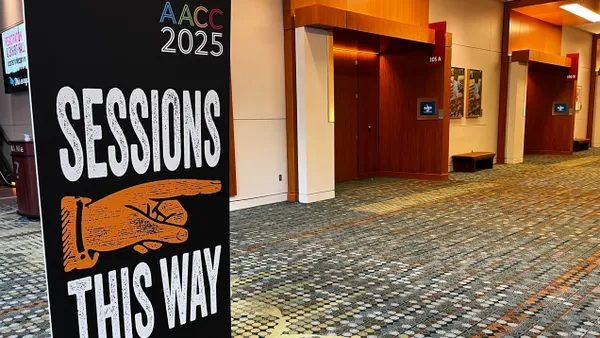Dive Brief:
-
The wide variety of college majors, courses and other learning opportunities available can have a negative impact on student outcomes, whether adding unnecessary credits and costs or triggering decision paralysis that prevents students from completing the program, according to a new report from Complete College America.
-
It highlights its Purpose First initiative with Strada Education Network and several colleges around the country. Through the initiative, those institutions tailor academic advising to students' abilities and career goals to help students stay on task to finish their degrees.
-
The report recommends other ways to improve graduation outcomes, including offering meta-majors so students can explore new fields without committing to a full degree or wasting credits; adding career exploration to new student orientation and First-Year Experience programs; and involving career service professionals in academic advising.
Dive Insight:
Colleges are realizing they have to play a bigger role in designing a higher education system that encourages degree completion and leads to careers that offer students a higher standard of living.
Inside Higher Ed recently reported on the launch of a contest sponsored by the U.S. Department of Education that tasked participants with predicting what higher education will look like in 2030 and addressing the anticipated challenges. The competition received 164 entries. One of the 10 winning projects, FutureFit AI, is an app modeled after Google Maps, allowing users to visualize their career plans, identify the skills needed to be successful and the opportunities they should look out for along the way.
Corporations and other industry groups, too, are supporting or initiating postsecondary programs that train students for technology careers. Apple is expanding its partnerships with community colleges to offer a certificate in iOS app development. Connecticut community colleges recently announced a partnership with the nonprofit Advanced Robotics for Manufacturing Institute to offer 4,000 hours of apprenticeship training to 30 students.
Large state flagship and research universities are also focusing more on workforce development. In a policy position paper released in September, the Association of Public & Land-grant Universities outlines several ways larger institutions can approach the ongoing and increasingly high-profile effort, including investing in advanced manufacturing programs and supporting entrepreneurship.












